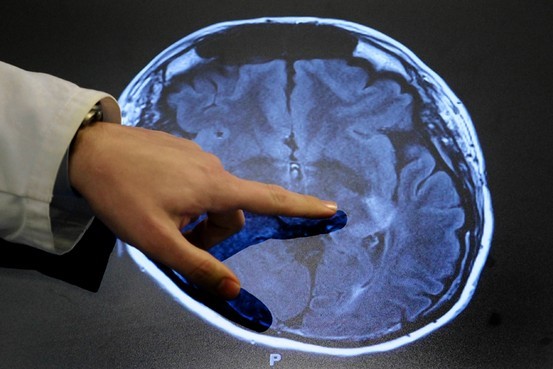Editor’s note: This story, originally posted on June 10, 2020, is being reposted to include a link to this anonymous survey: http://bit.ly/BOOST3CommunitySurvey. The public comment phase leading up to the study is nearly complete, and feedback is welcomed.
SAN ANTONIO (June 10, 2021) – A study of emergency care involving victims of severe brain trauma is to be performed in the San Antonio area.
Traumatic brain injury (TBI) is the leading cause of death and disability in children and adults up to 44 years of age. Every 15 seconds someone in the U.S. suffers a major traumatic brain injury, and every five minutes someone is forever disabled from TBI.
UT Health San Antonio and University Health are conducting a research study to learn which of two strategies for monitoring and treating patients with severe traumatic brain injury in the intensive care unit (ICU) is more likely to help them get better. Both strategies are used in standard care. It is unknown if one is more effective than the other.
In one strategy, doctors concentrate on preventing high intracranial pressure caused by a swollen brain. In the other strategy, doctors try to prevent high intracranial pressure and also try to prevent low brain oxygen levels. This study will discover which strategy is safer and more effective.
The study will include adults and children older than 14 years with severe brain injury requiring admission to the ICU with brain monitoring. Hospitals across the country are conducting the study, which is funded by the U.S. National Institutes of Health.
Because head injury is a life-threatening condition requiring immediate treatment, some patients will be enrolled without consent if a family member or other representative is not rapidly available. Every attempt will be made to locate family members prior to enrollment to allow them to decide about the patient’s participation in the study.

Before the study starts, the study team will consult with the community. The team welcomes feedback and questions from the public and has provided a link to an anonymous survey: http://bit.ly/BOOST3CommunitySurvey.
For more information or to decline participation in this study, please visit boost3trial.org or contact study coordinator Esther Nanez at (210) 450-9388.
Shaheryar Hafeez, MD, of the Long School of Medicine at UT Health San Antonio, is the principal investigator for the local study. Dr. Hafeez is assistant professor in the departments of neurosurgery and neurology in the Long School of Medicine, is a faculty physician in the neurocritical care division and serves as neurocritical care fellowship director. He is also director of quality and improvement for the neurosurgical intensive care unit at University Hospital.
“This study is positioned to show that not only monitoring brain pressure, but also monitoring brain oxygen levels and acting on them very quickly after patients have a traumatic brain injury, will show benefit months down the road when the patients have had a chance to recover,” Dr. Hafeez said.
“That’s also why we are doing the study as an ‘exception from informed consent,’ because we believe that the earlier we place these monitors in the patient’s brain and optimize the oxygen levels, the more benefit there will be,” he said.
The University of Texas Health Science Center at San Antonio, also referred to as UT Health San Antonio, is one of the country’s leading health sciences universities and is designated as a Hispanic-Serving Institution by the U.S. Department of Education. With missions of teaching, research, patient care and community engagement, its schools of medicine, nursing, dentistry, health professions and graduate biomedical sciences have graduated more than 37,000 alumni who are leading change, advancing their fields, and renewing hope for patients and their families throughout South Texas and the world. To learn about the many ways “We make lives better®,” visit http://www.uthscsa.edu.


